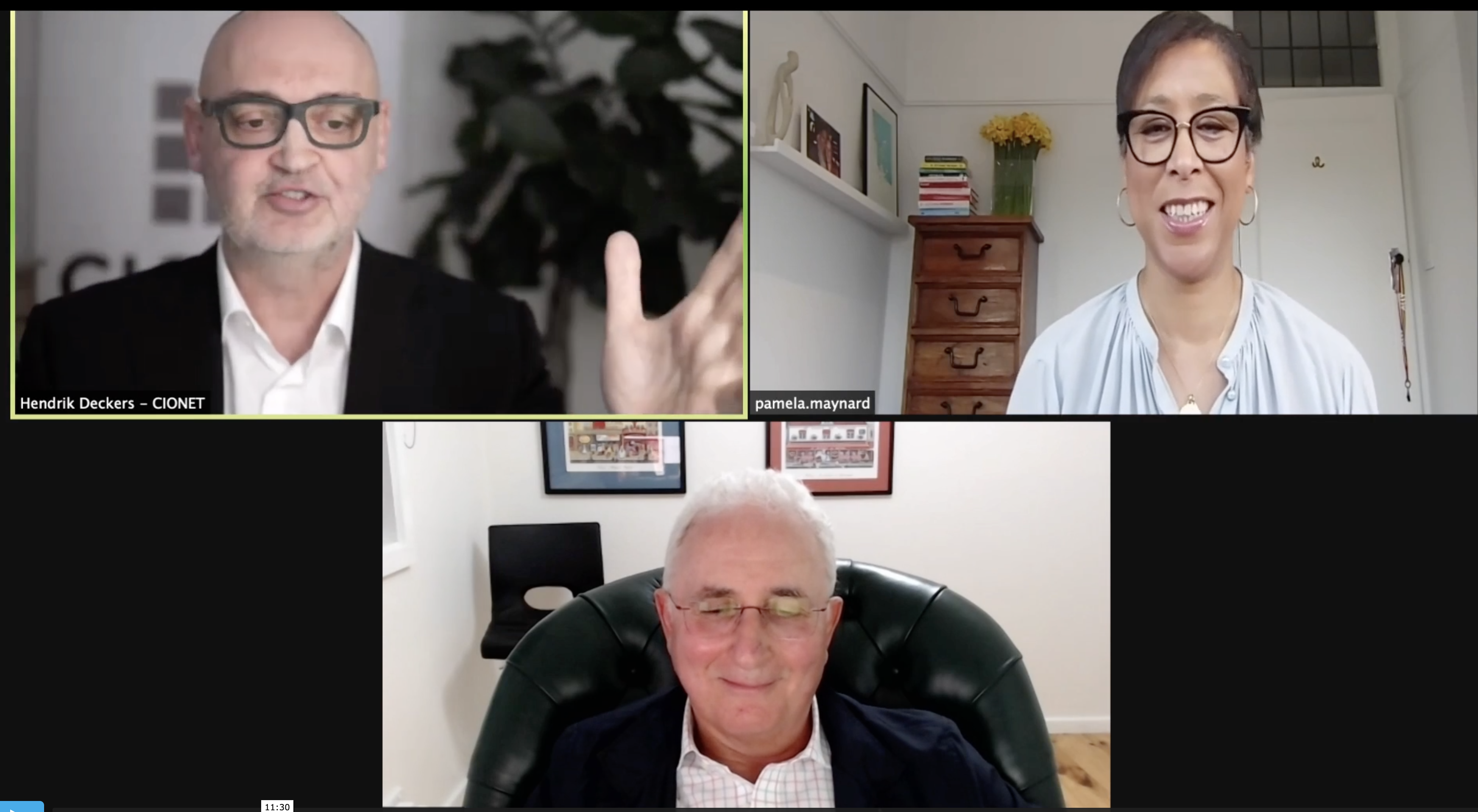Definition of Agile
When Dr. Peter Weill, Chairman of the Center for Information Systems Research at the MIT Sloan School, in a keynote conversation with Pamela Maynard, CEO of Avanade and Hendrik Deckers, Founder of CIONET, asked the more than 700 participants of CIOFEST on March 11th, for their DEFINITION of AGILE these were some of the answers:

- "Agile" is adapting to change quickly and in a controlled manner to succeed in today's tough market.
- "Agile" is being resilient.
- "Agile" is moving fast and flexible with a purpose.
- "Agile" does not mean "without rules".
- "Agile" is being willing and able to change rapidly.
- "Agile" is being capable to change.
- "Agile" is a continuum: regressive, inertia amenable, flexible and agile.
- "Agile" is systemic not elemental.
- "Agile" is the ability to “plug and play” and reconfigure internal services rapidly in response to market-driven change (customers, regulators and others) and opportunities (new technologies, new services to use (e.g. outsourcing or acquisitions).
- "Agile" means self-organising teams, max. transparency, strong customer focus, constantly feedback, learn and adopt, focus and discipline.
- "Being Agile" is like moving like a swarm of starlings.
- "Agile" is using data-based evidence to steer your development timelines.
- "Agile" must be defined for each organisation individually since each organisation has their own identity, culture and context.
- "Agile" is linked with building value, as hierarchy is about discussing or planning value delivery (yes, of course not always).
- "Agile" is the ability to adapt instead of blindly following the plan.
- "Agile" means to be business driven, able to change, collaborative and openminded.
- "Agile" means rapid prototyping, development and incremental releases.
- "Agile" is the ability to evolve.
- "Agile" means always being ready and welcoming inevitable changes happening outside of your organisation.
- "Agile" is a cultural change and needs to come from a place of psychological security across the organisation, and collaborative (outward looking) mindsets. Systems and processes are useful enablers.
- "Agile" is being open minded and ready to change
- "Agile" implies to focus digital efforts towards change
- "Agile" helps you to respond to change.
- "Agile" is being able to pivot your business model to thrive in a new market when hit by the pandemic.
- "Agile" is moving fast and flexible.
- "Agile" is delivering change quickly but safely.
- "Agile" is the ability to swiftly change strategies while remaining focused on a long-term outcome.
- "Agile" is being able to adapt to excel.
- "Agile" is to focus on learning and adapting to changes.
- "Agile" is the capability to accommodate for any possible transformation in the very limit time frame
- "Agile" implies short iterative pieces of work and a feedback loop.
- "Agile" implies constant change, constant delivery, with discipline.
- "Agile" requires that your organisation already has some level of maturity.
A big thank you to all speakers for their interesting presentations and sharing their experience and insights and to all participants for their active contributions in the chat and during the breakout sessions.


No Comments Yet
Let us know what you think